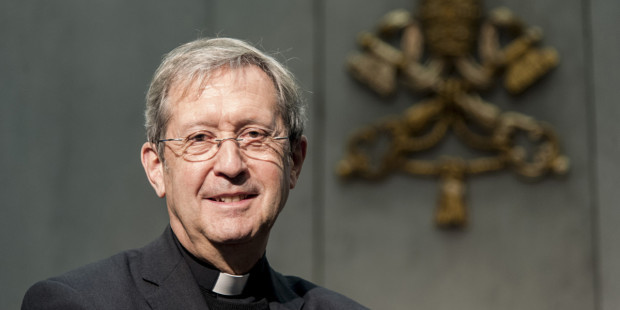Father Bruno-Marie Duffé, the Secretary of the Dicastery for Promoting Integral Human Development, talks to Aleteia about the recent Vatican text, “Considerations for an Ethical Discernment Regarding Some Aspects of the Present Economic-Financial System.”
Aleteia: How was it essential to bring the Congregation of the Doctrine for the Faith into this reflection on ethics in economics, which is not necessarily a Christian principle?
Father Bruno-Marie Duffé: This cooperation makes sense insofar as ethics takes its inspiration here in the act of faith. In articulating the two services, we have tried to integrate these principles of social ethics into the perspective of the confession of faith. We believe in a God who entrusts us with creation, in Jesus Christ who frees men from the impasse of appropriation, and in the Holy Spirit who inspires conducts of justice and peace. The collaboration was an effort of dialogue which also has the effect of presenting the Christian faith in the current context, not only on a theoretical but also on a behavioral level, because it is determined by our choices in the economic and social field.
Is there also—by the lexicon used in this document—a desire to be heard by the protagonists of the economy, who are sometimes removed from the Christian faith?
Absolutely. We wanted this document to be accessible to individuals in the financial sphere and to every citizen. The latter has some responsibility for his choices and the way he uses his money as a tool or an end. It is the debate that runs through the entire text: we radically challenge the vision of money as an end in itself. If wealth is no longer invested in a dynamic of innovation, in a circuit of production, work and exchange, it is useless. This is the heart of our thinking. When money becomes a closed, fetishized world unto itself, it becomes morbid.
The document refers many times to taxation, levies, and subsidies. When the state implements this policy, does it not participate in the isolation of wealth by removing it from the circuit of capital exchanges?
Yes, that’s why we call on states and public institutions to make sense of their taxes, in addition to encouraging them to put the money into a common project. If the state taxes individuals, it must be to support the community and not to punish the person who owns the money. The fundamental question is that of property. However, if wealth is not used but remains in a closed world, it is no longer a problem of taxes, but of appropriation. Of course, we own our money, but if the only logic is to amplify the appropriation—in a word, usury—then that can affect the distribution of goods.
Isn’t property a fundamental right promoted by the Church, notably by Pope Leo XIII in the encyclical Rerum Novarum?
In fact, it was then considered the guarantee of being able to build up a small capital, in order to survive. It is property conceived in the agrarian mode, meaning that it allowed people to dispose of lands and go from a proletarian status to that of a landowner. It is property in the Thomistic sense of the term: for St. Thomas Aquinas, property provides the means to live.
Is it adaptable to the current economy? To be able to donate, for example, you have to be able to freely dispose of your money …
From one point of view, the institutionalized tax is the secularized expression of charity. The state does indeed perform a charitable function, or a correction of inequalities. There is therefore no reason to be indisposed by taxation. Especially if there are so many needs, it’s because the situation is not fair enough.
Benedict XVI does not put taxes and charity on the same level, to the extent that charity, unlike the tax, must be free and voluntary …
The distinction of Benedict XVI indeed insists on the principle of gratuity, which is very strong in economics, because it amounts to giving without obligation and thus exercising our freedom. This gives charity its innovative character. The spontaneous gift is given each time as if it were the first. By contrast, state subsidies seem more institutionalized and formalized. But everyone must fulfill his role: the state regulates, the economy releases wealth, and finally the individual exercises charity.
The new Italian government plans to put in place a flat tax—a tax at a single rate, but paid by all citizens. Is this part of the “wise reforms” mentioned in the document?
This principle was mentioned by our working group and recognized as positive. However, we must take care of individuals with low or no income, for whom this ends up being a big contribution. But this tax does make sense because it would allow each person to contribute to the development of society and the common good. Paying the tax makes it possible to be recognized as a full citizen and thus acquire dignity.

